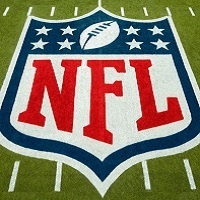When you’re just getting into sports betting, it can seem daunting. In fact, before I wrote gambling blogs for a living, I knew almost nothing about betting on sports. I’d just never been a sports fan before.
Of course, I’ve been gambling for a long time now. So, I’ve learned some things about sports betting along the way, and these days, I bet on sports regularly. I even play in a couple of fantasy football leagues.
Now that I have the experience to back my claims, here are the most important things I’ve learned that I think you should understand before getting started on a serious sports betting hobby.
1 – The Basic Bets Are Straightforward
Most of my audience is probably going to start by betting on football, which is great because it’s one of the easiest sports to understand betting on.
Point Spread
The first concept you should understand in football betting is the point spread. Not all football teams are the same. Some teams are far better than others. (Point spread betting is usually reserved for high-scoring games like football.)
The difference in their odds of winning is represented by the point spread. Football bettors like to make even money bets. They bet $100 on a game, and they win or lose $100.
To keep the action even and the odds of winning about 50%, the bookmaker—the company or person taking the bet—uses a point spread to represent the relative strength of one team over another.
The favorite is the team likelier to win, and the underdog is the team that’s more likely to lose. The favorite is listed with a negative number next to it. You subtract that number of points from their final score when determining who won the bet.
The underdog is listed with a positive number next to it. You add that number of points to their final score when adjudicating the winner.
For Example
Let’s say the Cowboys are a favorite to beat the Browns, and the point spread is -7.
You bet on the Cowboys, and they win 21-17. You subtract 7 from their final score, though, and you get 14, which is less than 17. Your bet loses because the Browns “covered the spread.”
Totals Bet or Over/Under
Another popular bet is a total bet. This is also called the over/under. It’s a bet on the final total score of the game. You get that total by adding the number of points for each team together.
In the previous example, with the Cowboys beating the Browns 21 to 17, the total score was 38. You bet that the game will either go over the over/under or under. It’s an even-money bet (again).
If the over/under for the earlier game were 45, you’d win the totals bet if you took the under, but you’d lose it if you took the over.
Moneyline
The moneyline is simple, too. It’s a bet that doesn’t use a point spread, and you win or lose if your team wins or loses. The only trick with a moneyline bet is understanding the payouts. They’re not that hard, though.
The favorite is still the team with the minus (-) sign next to their name, and the dog still has a plus (+) sign next to it. But in this case, the number indicates how much you’ll lose or win, respectively, based on a $100 bet.
If you bet on the favorite, you must risk the amount after the minus sign to win $100.
If you bet on the dog, you risk $100, and if you win, you get the amount after the plus sign.
Here’s an example: The Buccaneers are listed at +163, and the Packers are listed at -185. If you bet $163 on the Buccaneers, you win $100. If you bet on the Packers, you must risk $185 to win $100.
Moneyline bets are available in football, but they’re ubiquitous when betting on lower-scoring sports like baseball or hockey.
2 – The House Has a 4.5% Advantage in Sports Betting
If you’ve read much about sports betting, or if you’ve ever seen a movie like Silver Linings Playbook, you’ve heard of something called “the vig.” That’s short for “vigorish,” and that’s where the sportsbook makes its profits.
I know when I explained point spread bets that I talked about even money bets, but in reality, you won’t place even money bets with a sportsbook. You’ll actually be asked to risk slightly more than you’re expected to win.
The ratio is usually 110 to 100. You must risk $110 to win $100, but that doesn’t mean your minimum bet is $110. You could bet $55 to win $50, for example or $22 to win $20. It’s the ratio that matters.
Recommended Reading:
When you talk about casino games, you talk about the house edge. When betting on sports, the house also has an edge, and it’s caused by the vig.
The vig also has implications related to your winning percentage.
3 – You Must Win 52.4.% of Your Bets to Break Even
Let’s suppose you make 100 bets of $100 each and win half of them. You’re actually having to risk $110, so you’ll lose $110 X 50, or $5500, and you’ll win $5000. That’s a difference of $500, which is the net amount you’ve lost over the 100 bets.
Now, let’s assume you win 53 of those bets and lose just 47 of them. You’ve won $5,300 (53 x $100), and you’ve lost $5,170 (47 x $110). You showed a tiny profit with a 53% win rate—$130 over 100 bets.
You’d think that your breakeven point would be 50% but, because of the vig, you must win more than half your bets just to break even.
4 – Sports Bets Provide More Entertainment Value Than Casino Gambling
I say that sports bets provide more entertainment value per hour than casino gambling, but that assumes you’re making reasonable bets in relation to your bankroll.
If you bet $100 on three football games a week and each game lasts three hours, you’re getting nine hours of entertainment on your $300. Even if you lose all three bets, you’re only out $33.33 per hour.
Of course, you’re probably going to win one or two of those bets, which means your actual loss will be closer to $11 or $22. And sometimes, you’ll win all three bets.
Compare that with the cost of playing a slot machine with a 93% payback percentage. If you’re playing a dollar slot machine at $3 per spin, you’re putting $1,500 per hour into action. You won’t lose all that, but with a 7% house edge, you’ll average $105 in losses per hour.
Would you rather watch a football game with your buddies with some money on it? Or would you rather watch spinning reels mindlessly in a casino? I know which way I’m leaning.
5 – You Have a Lot of Work to Do If You Want to Be Serious About Sports Betting
Of course, when I say “serious,” I mean a sports bettor who wants to achieve profitability—or at least break even. Winning 52.4% of the time might sound easy to achieve, but it’s harder than you think.
The handicappers who set the point spreads and the moneylines are REALLY good at what they do. They have access to expensive software and the experience to know what to do with it. The probability that you’ll do a better job of handicapping the games and finding their mistakes is low.
To succeed, you’ll need to spend a tremendous amount of time analyzing sports data. If you hate math and numbers, you probably won’t make it as a serious sports bettor.
You’ll also want to follow sports gossip more closely than the average sports fan. Those rumors can result in opportunities to get an edge—opportunities you’ll need if you’re serious.
If you were the type of person who were going to be a serious professional sports bettor, you’d be watching a game instead of reading this post.
6 – Avoid Tout Services
Try your best to stay away from tout services.
You may be wondering, “What’s a tout service?” It’s a company (or individual) who sells picks for you to bet on. They’re theoretically really good at picking winning bets, but they’re probably not as good at it as you’d like to think.
I had a buddy who worked in a call center for one of the biggest tout services in the world. He told me that they’d divide the call center into two teams, and half of the operators would pick one side of a match. The other half would pick the other side of the match.
This way, half their customers were winners without any effort at handicapping on their part.
I don’t remember if they went back to the losing bettors to offer them a free pick, but that would be an easy way to get that customer back. Offer them a free pick, and you have a 50% probability of getting that one right regardless of which side you picked.
Note:
This wouldn’t be a problem except for one thing: You’re giving them money.
This effectively makes the vig higher, which means you need to win an even higher percentage of bets just to break even.
7 – Sports Betting Can Be Fun Recreationally
It’s a hard job if you want to be a professional. I’ve already explained what’s involved in just getting serious enough to break even at it.
Becoming addicted to sports betting can be one of the most miserable experiences of your life. It’s like any other addiction, only it might be more expensive than many others.
If you think you have a gambling problem, don’t be hesitant to seek professional help. Most gambling sites have disclaimers about gambling addiction and provide resources for problem gambling.
Conclusion
If you’re thinking about getting more serious about betting on sports online, reading more about it and practicing different tactics is a great way to get involved in the hobby. I personally prefer it to casino games and like it at least as well as I enjoy playing poker.
Now that you’ve read this post, you have what you need to know to get started with online sports betting.










